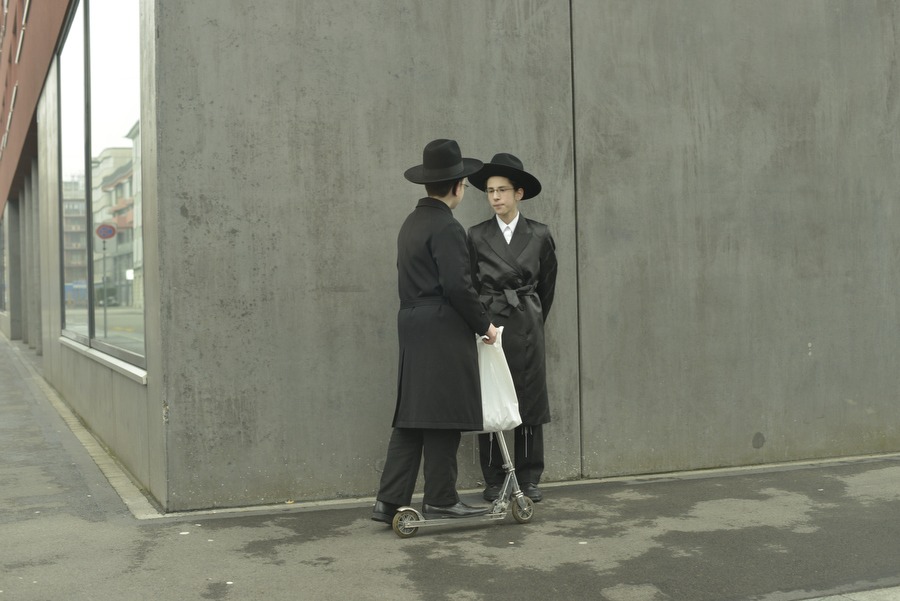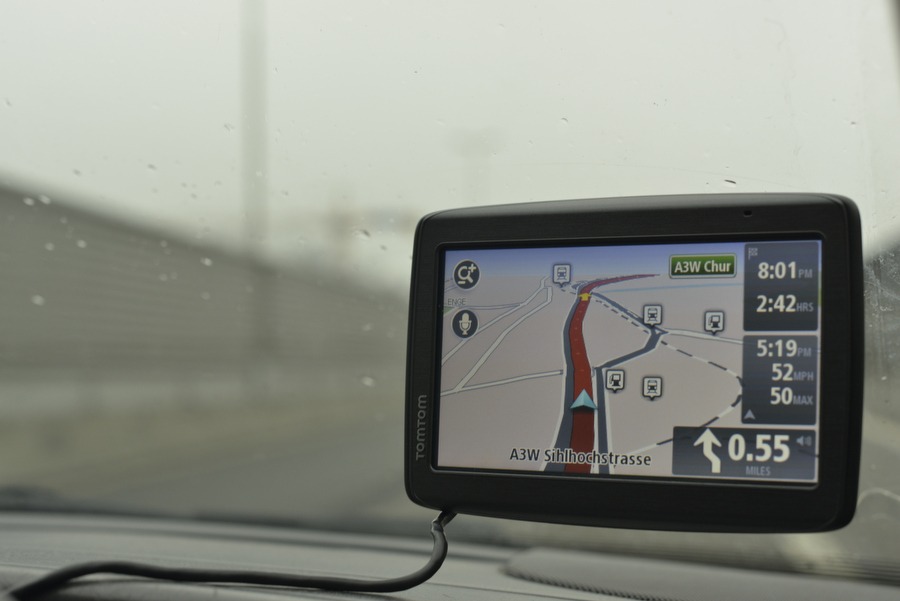It was my friend Michael who suggested driving to Rome. He said I would enjoy it. He likes that kind of thing… days at the wheel, alone. I slowly came around to the idea, thinking that aside from the dubious advantage of having a car in Rome, it would also mean I could take more things with me. Equipment, books, computer hard drives, DVD’s
The list seemed to be growing, and the pile of ‘essentials’ for the three months living in a studio in Rome was spreading across my living room floor, into the hall and up the stairs. Was it all necessary I wondered? Even the pillow? The appearance of a pillow on top of the pile caused some amusement and derisive comments from my girlfriend who warned that it was not only unnecessary and a bit pathetic, but also that she would ‘tell everybody’ that I travelled with a pillow. But I am not so easily blackmailed. I have slept in beds all over the world, and a bad pillow can be your undoing. The ‘Bangladeshi Wafer’ – a pillow made of a loose assembly of shredded foam chunks, so thin and inconsequential that it shouldn’t even be called a pillow. The ‘Overstuffed American’ – which lifts your head so high that you can sleep looking at your toes. One night in a motel I actually attacked my pillow with a Leatherman camping knife, slitting it open and removing half of its innards, like a wartime surgeon, pulling out handfuls of expanding spun nylon. I have never experienced a pillow so unyieldingly overstuffed. I tell you this with an awareness of how pathetic it might indeed sound. I wonder, does James Nachtwey, the celebrated chisel-faced photojournalist, does he travel with a pillow? Did Don McCullen take one to Vietnam? Who knows, but let’s assume probably not. These are real men. Serious, focussed, unsmiling.
As I surveyed my packing, my cat spotted the pillow and curled up on it. No I did not feel like McCullen at this moment, who famously took only 25 rolls of Tri-X 35mm film and a toothbrush into combat. During my university years he had been the much talked about hero of my most influential lecturer, Ted Welch. Ted force-fed us a diet of McCullen (with a peppering of Marxist theory), and it influenced us strongly. Committing to an issue, with a romantic sense of righting wrongs and exposing evil. These were notions to aspire to. After leaving college I travelled to Somalia, at the height of the war and resulting famine that ravaged the country. It was a crash course in human misery, and it quickly became apparent that naïve but well-meaning black and white images were not going to right these wrongs. Here was a complex political situation borne from years of political meddling by insidious outside forces – a violent dictator propped up by foreign governments using the country as a pawn in the Cold War. I wont go into that now, but I remember this: there was food readily available in the markets down the road from the camps of famine stricken dying, and the teenage gunmen who terrorised the streets were armed with American and Russian weapons. And no, if you are wondering, I did not take a pillow to Somalia. Or later, to Angola, El Salvador or Afghanistan. But I carried a growing sense of unease that it wasn’t enough to simply document and ‘bear witness’. Responding only to events as they appear on the surface can be counter-productive, reinforcing racial stereotypes and joining in a media frenzy of sensationalism and over-simplification.
Over the years my work has changed and evolved. Gun Nation grew out of these experiences, and with it a desire to go beneath the surface, explore and deconstruct myths and stereotypes, and look increasingly at the underlying problems of the so-called ‘developed world’, rather than what was casually referred to as the ‘Third World’. My second book project; Love Me came very much from this change of focus, with the aim to explore the dark side of Western culture.
The morning of departure from London to Rome felt surreal. Packing for three months is difficult. It’s like moving to live somewhere else, but at the same time, not. To complicate matters, it was becoming increasingly clear that my proposed project was demanding to be ‘a film’. As I researched and developed the idea every sign was that the story would best be suited – and best told – through film. But this presented new technical demands: an up-to-date HD video camera, lighting for the interviews I planned, audio equipment (a whole new can of worms when filming, and not something that can be left to chance) and all the associated paraphanelia. It was going to take five days to get to Rome by road, with stops planned along the way. The most important thing was to arrive in Zurich, en-route, by Easter Sunday. Here I had arranged to meet and film an Eritrean Catholic priest perform Mass to a congregation of Eritrean and Ethiopian migrants now living in Switzerland. He is one of the key characters in my project: It was he who received the migrant boat’s first distress call from the Mediterranean. I hope also that I can locate the boat’s survivors through him, and tell the story of how their pleas for assistance were ignored.
As I started the engine and pulled away, my overloaded car, now crammed to the roof, felt heavy and sluggish, and scraped over the first speed hump. I drove to the end of the road, turned right, and parked outside my favourite café, Tina’s. The first stop, four minutes into my journey. I wanted a last coffee. The pessimistic side of me was preparing for imminent breakdown on a lonely European motorway. I tend to think of pessimism as a form of preparation: steeling myself for events to come. This means that when disaster does arrive, I’m ready for it. Sometimes it’s almost a relief when it does, so I can stop waiting for it. I’m good in a crisis, and maybe that’s why. As it turned out, my 15 year-old Saab made it to Rome without incident. Yes, it took five days, and the cost of petrol and the non-stop ‘tolls’ along the motorway in France and Italy made it hugely expensive, but, aside from the worry, the time, the cost, and the risk of imminent death, I recommend it. In fact, I enjoyed it. The secret, for me, was audio books. It sounds like something your grandparents do, but time flies by with a good story, and the journey passed in a meditative daze. Through rain, snow, sun, and rain again, as I finally entered the ancient city of Rome in a frenzy of honking, swerving cars.
Arriving at the British School a Rome was strange. Five days alone in the car had put me in an unusual state of mind. I didn’t feel ready to arrive, to be sociable, to face the world. I pulled up at the foot of the grand sweeping steps and gazed up at the vast, pillared neo-classical building. It seemed implausible – to a boy educated in a series of concrete comprehensive schools – that this was to be my home for the next three months. It would later become apparent that this majestic entrance was mainly a façade, and that behind it was an altogether more functional network of studios, office and corridors. I drove to the rear of the building and unloaded my equipment through the window of my new high-ceilinged, white studio. I had arrived.
Published on 30 April 2013
Submitted by Zed Nelson
Edited by Photoworks



